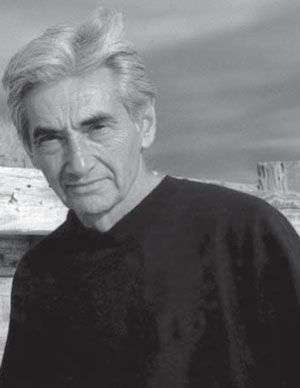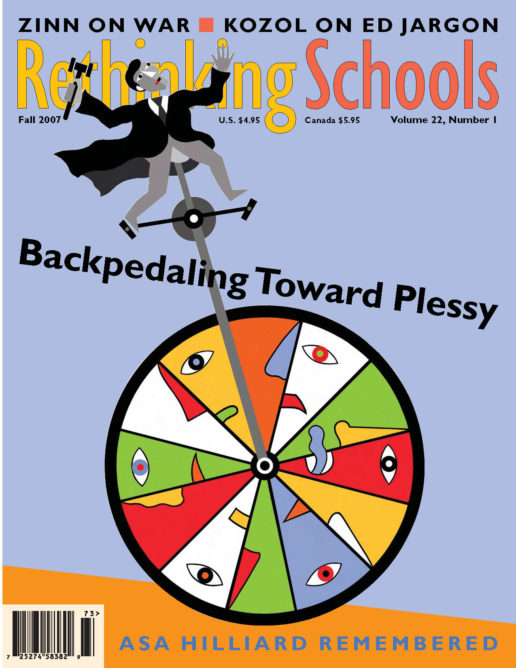Wars Then and Now
An interview with Howard Zinn
Illustrator: Roslyn Zinn

Photo: Roslyn Zinn
A People’s History of the United States inspired us to ask questions about how we teach history in America. This seminal book moved past the official narrative and dug deep into the lives of those who lived at the margins. It also taught us how ordinary people can change the world.
Now, historian Howard Zinn brings this same principle to two new volumes for children and young adults with the publication of A Young People’s History of the United States. The books come at a difficult time in America with a two-front war and drums beating louder and louder for a third.
Zinn spoke with managing editor Fred McKissack about what teachers can do to discuss America’s conflicts, past and present.
Fred McKissack: What do you see is the connection between Iraq and Vietnam, as well as the media’s role in connecting the two wars?
Howard Zinn: Well, there are obvious differences between Iraq and Vietnam. But there are also similarities. The similarities are that they are both moments in the history of American empire, which have common characteristics. And those characteristics are that the interventions are motivated not by a desire to promote democracy or extend liberty to the people in those countries, but motivated, fundamentally, by the desire to control raw materials and desire to extend the American empire to yet another part of the globe.
In both situations, there is an enormous web of deceit spun around these events to persuade the American public that this is absolutely necessary. In both cases, there is a kind of horror story that is presented to the public if we don’t intervene.
In both cases, fear is used to justify an ongoing atrocity. And they justify the atrocities by creating an enormously large menace to combat. So even as they commit an atrocity, it is supposedly minor compared to what they are preventing.
McKissack: How can teachers approach teaching about war in a way that will help their students think more deeply and intelligently about Iraq?
Zinn: I guess it’s a matter of asking questions about how America should behave in the world. What should we be trying to do in the world? Does military force do anything good in the world? Does war help in bringing democracy and liberty to the world?
Here history is important for young people. If they know the history of wars in this country — the Spanish-American War, the war in the Philippines, the war in Korea, the war in Vietnam — they will be able, without further prompting, to understand there is a pattern of war, which kills a huge number of people and settles nothing.
Also, [teachers] need to raise questions about patriotism and whether or not you should believe and trust your political leaders. Here, too, history is important to show how often our political leaders have betrayed our trust and deceived the people of this country. It is important to discuss patriotism. Is it loyalty to your government or loyalty to the principles for which the country is to exist? When young people say they are fighting for their country, are they fighting for their country or fighting for their government?
McKissack: How do teachers expose students to the misery of war without leaving them hopeless?
Zinn: I think they have to learn about the antiwar movements. If you show the courage of people who oppose war then the horrors of war are woven into that story of opposition. Have them read Born on the Fourth of July, Ron Kovic’s story of his experience in Vietnam and how he turned against it. Simply showing the horrors of war doesn’t do the trick. There are novels that are powerful. I always recommend Johnny Got His Gun, by Dalton Trumbo.
McKissack: As someone who lived in the South as the Civil Rights Movement was unfolding, are you disturbed by the uncoupling of that movement and the Antiwar Movement?
Zinn: Oh, yes. It is disturbing to see those connections lost by the media and by our history books. Of course, Martin Luther King Jr. is a powerful connection here. But there were also SNCC (Student Nonviolent Coordinating Committee) people who were among the first draft resisters. It is disturbing, but it gives us work to do.

